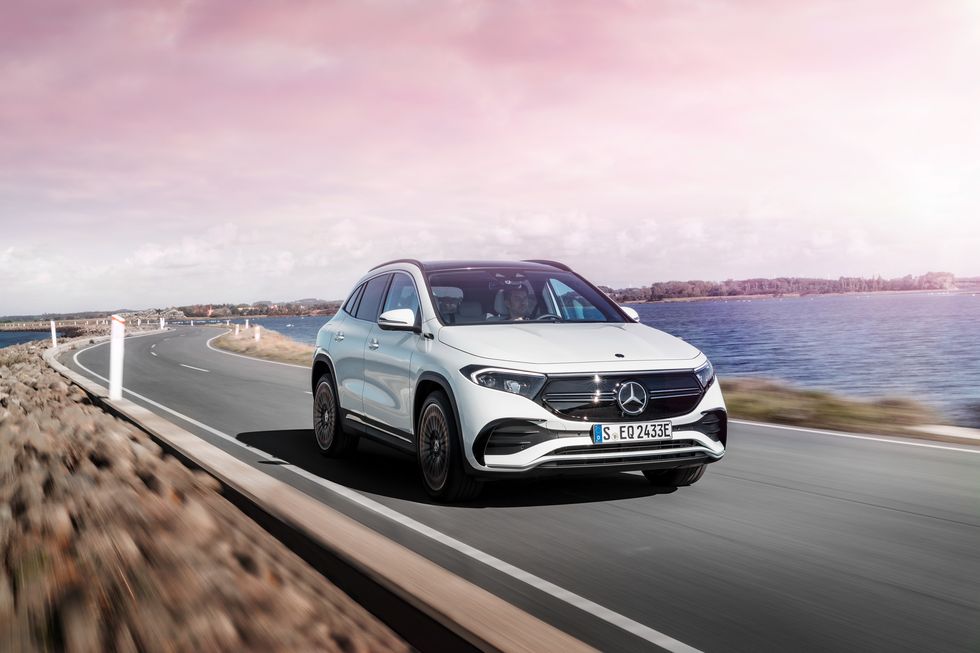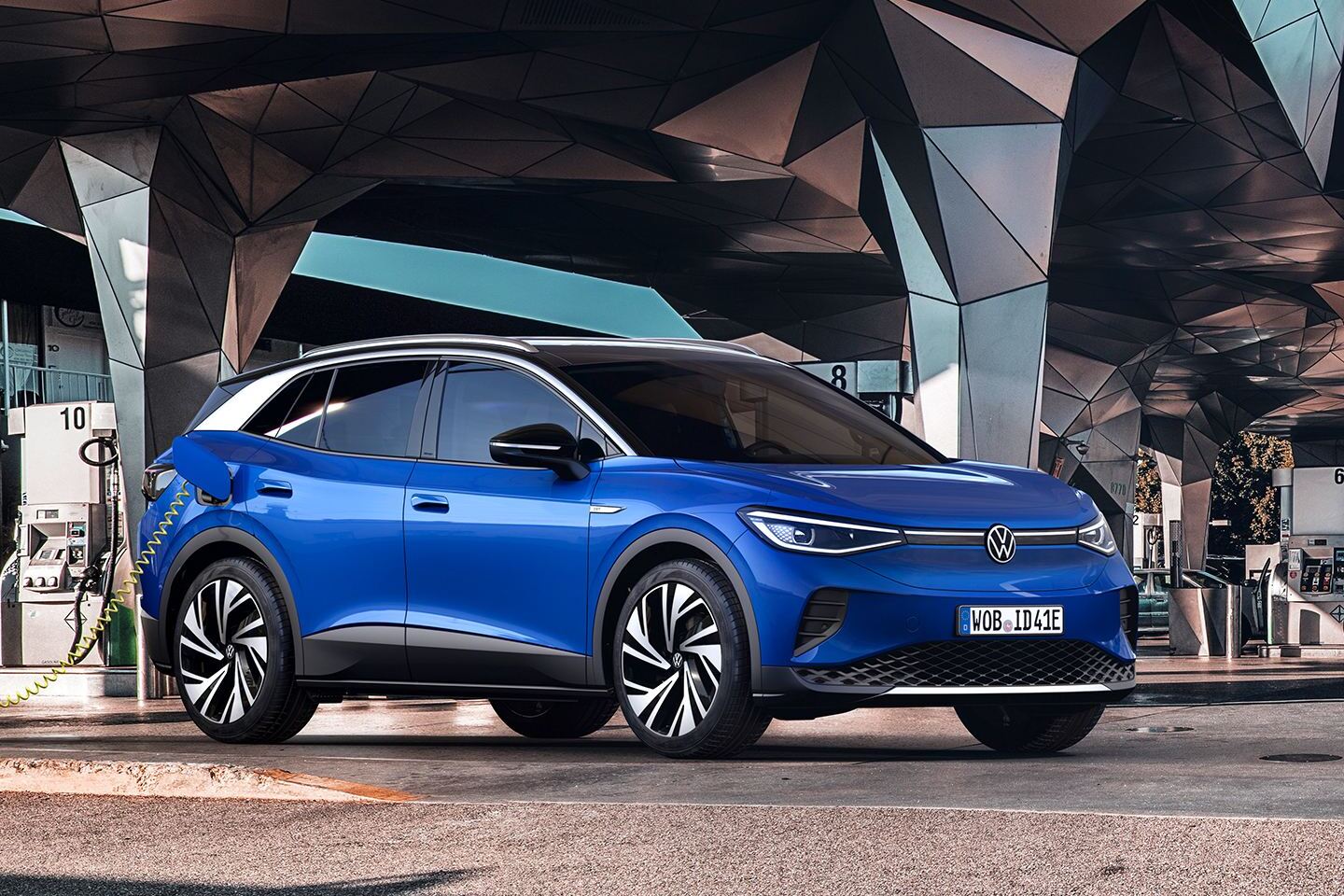A few days ago I wrote that electric vehicles are approaching price parity, and today's story continues with a look at the rapidly evolving automotive market for EVs. 2021 may well become the year when EVs grew out of teenage years into adulthood. Major car manufacturers such as Mercedes-Benz and Volkswagen (pictured below) are starting to reclaim market share from upstarts like Tesla. Their manufacturing heft and design know-how will likely give them an edge in the upcoming battle for leading the EV revolution.


Image sources: Mercedes-Benz, Volkswagen
According to EVvolumes.com, the electric vehicle world sales database, 2020 was a record year for electric vehicle (EV) sales. According to statistics compile by the site, the global market share of EVs increased from 2.5% in 2019 to 4.2% in 2020. Europe has started to eclipse China, with record growth during the second half of 2020. Every fifth new car in Europe is now an EV.
The selection of EVs is improving rapidly. Mercedes-Benz is expanding its EQ line of EVs with the new EQA subcompact SUV. The EQA follows is derived from the subcompact GLA-class of vehicles but has been redesigned as an EV but follows a more traditional appearance with a faux grille. Not really needed anymore in an EV as no gas engine needs to be air-cooled, the grille gives vehicles a "face". Tesla has done away with it, giving their vehicles a distinctly different look. The EQA comes with a 67-kWh battery pack that should give it a range of about 480km. The EQA is pictured on the left above.
Volkswagen will release its subcompact SUV, the ID.4, later in 2021. With a 77-kWh battery it is expected to have a range of about 510km, although smaller battery option (52-kWh) is available to economize on purchase cost. The appearance still resembles traditional SUVs, but the front is halfway between Tesla's and Mercedes-Benz's approach. The ID.4 has no faux grille, but instead a central bar that crosses through the distinct VW badge in the middle. The ID.4 is picture on the right above.
The Mercedes-Benz EQ series (EQC and EQA so far) and the Volkswagen ID series (ID.3 and ID.4 so far) are demonstrating the commitment of major manufacturers to speed up the EV transition. The variety of EVs will expand dramatically in the next years, while the cost of batteries continues to fall. A December 2020 report by BloombergNEF found that battery prices fell 13% from 2019 to 2020, to US$137/kWh. They also report that battery pack prices of less than US$100/kWh have been observed for the first time. BloombergNEF expects a US$101/kWh price by 2023, often regarded as the tipping point that brings EVs to price parity with gas-powered vehicles. BloombergNEF expects battery prices to fall to US$58/kWh by 2030 when the current lithium-ion technology is surpassed by new types of solid-state batteries. Meanwhile, lithium-ion technology is evolving to achieve higher density with new chemistries, including lithium nickel cobalt aluminium oxide (NMCA) and lithium iron phosphate. We can expect battery technology to make significant progress in the next number of years given how much resources are now invested into developing these technologies.
Volkswagen has learnt an important lesson since its troubles with emissions from its Diesel vehicles. The automotive future must be environmentally friendly. Volkswagen says that it will release 75 all-electric models by 2029 and achieve complete carbon neutrality by 2050.
New EV productoon facilities will emerge. At first, VW's ID.4 will be built only in Zwickau, Germany. But VW is investing US\$800 million into a new production facility in Chattanooga, Tennessee, to serve the US market. The US facility will also include a state-of-the-art test and evelopment laboratory for battery packs. The first vehicles are expected to roll off the new assembly line there in early 2022.
Other manufacturers are not sitting idle either. At the upper end of the market there are the Ford Mustang Mach-E, the Hyundai Kona Electric, the Volvo XC40 Reharge, the Jaguar I-Pace, along with Tesla's models X and Y. The 2022 Chevrolet Bolt EUV will be another crossover SUV entering this market, with EUV standing for "Electric Utility Vehicle". Perhaps the moniker may stick for the entire class. And the Nissan Leaf remains one of the popular choices in the compact-class market; more than half a million have already been sold worldwide.
![[Sauder School of Business]](logo-ubc-sauder-2016.png)
![[The University of British Columbia]](logo-ubc-2016.png)